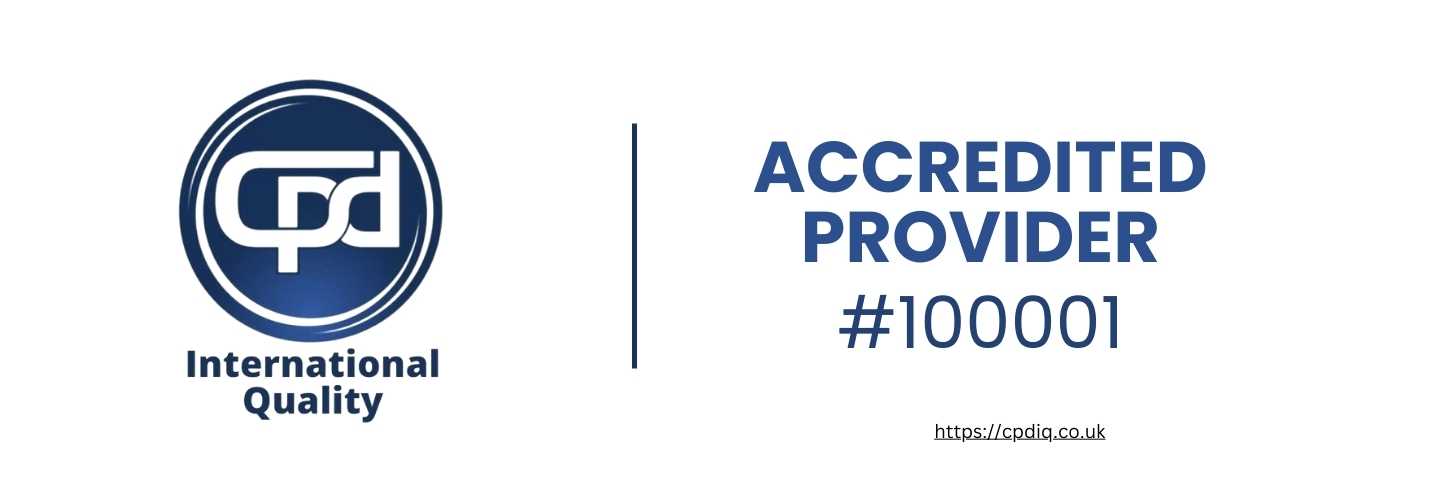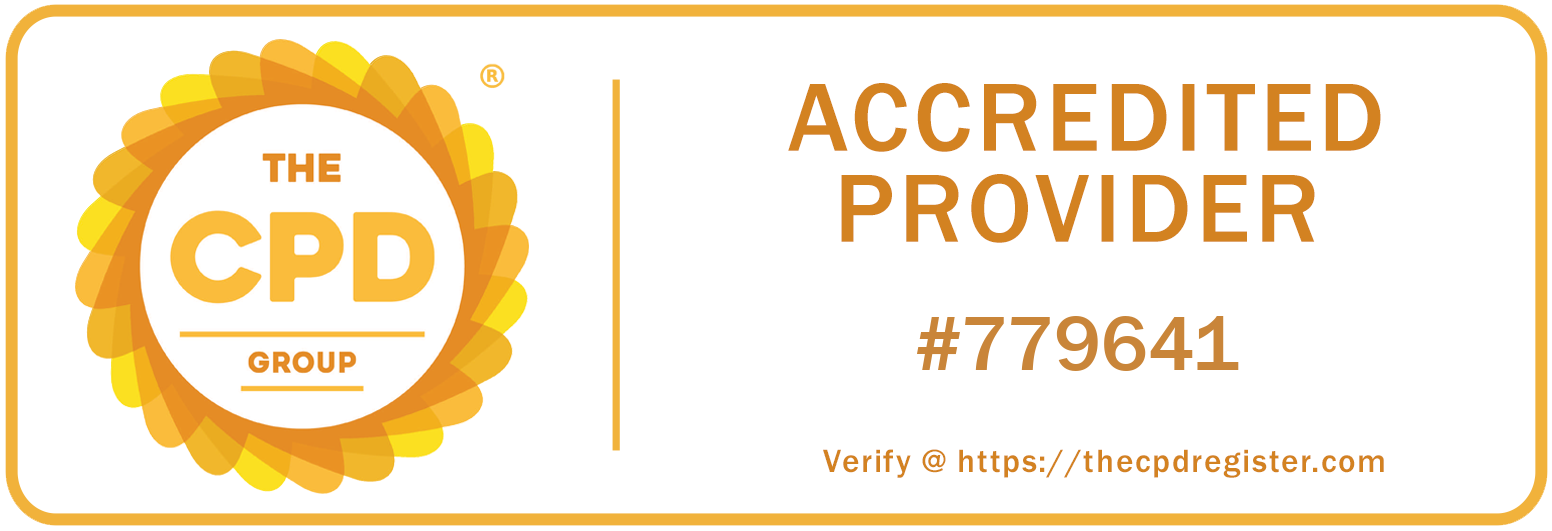
If you’re wondering how to become a self-employed caregiver, and you have a passion for helping others while wanting the freedom to work on your own terms, this could be one of the most rewarding career moves you’ll ever make. Across the UK, thousands of experienced carers are leaving agency work and full-time employment to start their own independent care services — offering flexibility, higher earning potential, and more control over how they support their clients.
But independence also comes with new responsibilities. From understanding the legal requirements to finding clients and managing your own finances, the journey to becoming a successful self-employed caregiver requires careful planning. You may be asking yourself, “How do I become a self-employed carer?” — and this guide will answer that question in full.
Quick Overview
If you’re considering how to become a self-employed caregiver in the UK, it’s important to understand the role, legal steps, and business setup. Becoming independent lets you choose your clients, set your rates, and provide personalised care while enjoying flexibility and higher earning potential.
Whether you’re supporting elderly clients, people with disabilities, or families needing respite, this guide walks you through:
✅ Essential qualifications and mandatory checks.
✅ Setting up as a self-employed caregiver legally.
✅ Finding clients, setting rates, invoicing, and managing taxes.

In this detailed guide, we’ll walk you through everything you need to know — including the qualifications you need, how to register as self-employed, how to set your rates, and how to build lasting client relationships. Whether you’re just getting started or looking to formalise your freelance care business, you’ll find everything you need to get up and running with confidence.
Understanding the Role of a Self-Employed Caregiver
A self-employed caregiver (sometimes called a self-employed carer or independent carer) is someone who provides personal care or support services directly to clients, without being employed by an agency or care company. If you’ve ever wondered how to become a self-employed caregiver or asked yourself, “How do I become a self-employed carer?”, this role could be the answer. Instead, you work for yourself — managing your schedule, contracts, and income.
Your work might include:
- Helping clients with daily living activities such as washing, dressing, or meal preparation.
- Providing companionship and emotional support.
- Supporting clients with medication reminders or appointments.
- Assisting with mobility or exercises.
- Offering respite care to families and full-time carers.
You might work with older adults, individuals with disabilities, or those recovering from illness or surgery. Some self-employed carers choose to specialise — for example, in dementia care, end-of-life care, or mental health support — while others provide general assistance for clients in their local area.
Essentially, being self-employed gives you the power to decide who you work with, how much you charge, and when you work — allowing you to build a career that fits your lifestyle and values.
Why Choose Self-Employment as a Caregiver?
There are several reasons why so many UK carers are turning to self-employment. If you’re considering how to become a self-employed caregiver, let’s look at the biggest benefits:
Greater Flexibility
You choose your own working hours, clients, and services. This makes it easier to balance work with personal commitments or family life.
Higher Earning Potential
Unlike agency work, where a portion of your hourly rate goes to the agency, self-employed carers keep all their earnings (minus taxes and expenses). Many find they can earn significantly more while working fewer hours.
Stronger Relationships with Clients
As an independent caregiver, you can take on fewer clients and focus on building long-term, meaningful relationships — something that’s often missing in fast-paced agency settings.
Personal and Professional Growth
Running your own care business develops valuable skills in communication, management, and entrepreneurship. It’s a career that blends compassion with independence.
Diverse Work Opportunities
You can work directly with private clients, partner with local councils, or offer respite support to families — giving you the chance to shape your services around your interests and expertise.
Is Self-Employment Right for You?
Before taking the leap, it’s important to consider whether self-employment suits your circumstances. Independent carers need to be:
- Organised, as you’ll manage your own bookings, invoices, and tax.
- Reliable, since clients depend on you directly.
- Confident, when it comes to handling contracts and promoting your services.
- Compassionate, with a genuine commitment to person-centred care.
If you already have care experience, good communication skills, and a desire for autonomy, this career path could be ideal for you. You might also be wondering, “Do I need qualifications to be a self-employed carer?” In the next sections, we’ll cover the essential qualifications and training you may need to get started.
Qualifications and Training: What You Need to Become a Self-Employed Caregiver
One of the most common questions aspiring carers ask is, “Do I need qualifications to be a self-employed carer?” If you’re wondering how to become a self-employed caregiver or how to set myself up as a self-employed carer, this section will guide you through the essential steps.
Technically, you don’t need a formal qualification to start working as a caregiver in the UK, but having the right training and credentials will make a huge difference. It not only builds trust with clients and families but also helps you deliver safe, professional, and high-quality care.
Here’s what you should know:

1. Essential Qualifications
If you’re just starting out, consider completing the Care Certificate — a nationally recognised qualification that covers the core standards expected of all care professionals. It includes essential topics such as:
- Duty of care and safeguarding
- Communication and confidentiality
- Health and safety
- Infection prevention and control
- Basic life support
Most online providers offer this course affordably, and it can be completed at your own pace.
Beyond that, consider progressing to:
- Level 2 or Level 3 Diploma in Health and Social Care (RQF) – ideal for carers seeking to deepen their skills.
- Specialist courses in dementia care, end-of-life care, medication handling, or mental health support.
These qualifications aren’t just certificates — they demonstrate professionalism and reassure families that you meet national care standards.
If you’re asking, “What qualifications do you need to start your own care business?”, these courses and diplomas provide a strong foundation.
2. Experience and References
While qualifications matter, experience is what truly builds your reputation. Most clients or families hiring private carers look for:
- A background in home care, support work, or healthcare assistance.
- Positive references from previous employers or clients.
- Evidence of reliability, empathy, and strong communication skills.
If you’re new to the field, consider volunteering in a care home, hospital, or community service to build experience before offering services independently.
3. Mandatory Checks and Legal Requirements
Before you start working with vulnerable people, you’ll need to complete the following steps:
✅ DBS Check (Disclosure and Barring Service)
This criminal-record check is mandatory for anyone working in health or social care.
- Apply through the UK government website or a registered umbrella body.
- Choose the Enhanced DBS Check (the version required for care work).
- Keep your certificate updated and register for the DBS Update Service so clients can verify your record online.
✅ Right to Work in the UK
Ensure you have legal eligibility to work in the UK — whether you’re a British citizen, permanent resident, or have a valid visa that permits self-employment.
✅ Public Liability Insurance
Insurance protects you if a client is injured or property is damaged while you’re working. Many carers also take Professional Indemnity Insurance, which covers claims related to your care advice or decisions.
✅ First Aid and CPR Certification
Although not legally required, every independent carer should be trained in first aid and CPR. It could save a client’s life in an emergency.
By combining the right qualifications, experience, and legal checks, you can confidently start your independent care business and take the first steps in how to become a self-employed caregiver.
How to Set Yourself Up Legally as a Self-Employed Caregiver
Once your training and checks are sorted, it’s time to make your business official. If you’re wondering how to become a self-employed caregiver, these steps will guide you through the legal setup.
Step 1: Register as Self-Employed with HMRC
You’ll need to register with HM Revenue & Customs as a sole trader. This allows you to report your income and pay tax through Self Assessment each year.
- Visit GOV.UK/register-for-self-assessment.
- Keep accurate records of all income and expenses.
- Submit your annual tax return before the January deadline each year.
- If you earn above £1,000 per tax year from your care work, registration is required by law.
Step 2: Create a Simple Business Name and Brand
Many self-employed carers trade under their own name (e.g., Sarah Jenkins Care Services), while others choose a small business name like Caring Hands by Laura. Whatever you choose, keep it professional and easy to remember.
Step 3: Set Up a Business Bank Account
While not mandatory, having a separate account helps you keep personal and business finances organised. It also makes tax filing much easier.
Step 4: Keep Financial Records
Track your invoices, mileage, and expenses carefully. Good record-keeping ensures accuracy in tax reporting and helps you understand how your business is performing.
It’s also important to consider “Do self-employed carers need a contract?” — having a clear written agreement with your clients can protect both parties, outline responsibilities, and make your business look professional.
Do Self-Employed Carers Need a Contract?
Yes — absolutely. A written contract protects both you and your clients. It clarifies what services you’ll provide, your rates, payment terms, and other important details. If you’re considering how to become a self-employed caregiver, having a contract is one of the first steps to setting up a professional and trustworthy business.
A good care contract should include:
- The client’s name and address.
- Your services (e.g., personal care, companionship, medication support).
- Hours of work and location.
- Your hourly or daily rate.
- Payment terms (weekly, monthly, or per session).
- Holiday or sickness arrangements.
- Termination notice period.
Having a clear contract builds trust and prevents misunderstandings. You can find templates online, but it’s always wise to have a solicitor or advisor review your version to ensure it meets UK legal standards.
Insurance and Safety Responsibilities
When you work independently, you are responsible for protecting yourself and your clients. Besides public liability insurance, consider:
- Personal Accident Insurance, in case you’re injured at work.
- Car insurance for business use, if you drive between clients.
- Data protection compliance, especially if you store client information digitally.
It’s also vital to conduct risk assessments before starting new care arrangements — noting hazards such as trip risks, mobility challenges, or medical emergencies. This helps ensure safe working environments for both you and your clients.
If you’re wondering how to find clients as a self-employed carer or how much should a self-employed carer charge, these considerations are key to building a successful independent care business. We’ll cover practical tips for client acquisition and rate-setting in the next sections.
Setting Your Rates as a Self-Employed Caregiver
One of the most empowering parts of becoming self-employed is that you get to decide what your work is worth. However, setting your rates requires a balance — you want to remain competitive while earning enough to cover your costs and reflect your experience.
1. How Much Should a Self-Employed Carer Charge?
Rates for self-employed caregivers in the UK vary depending on location, experience, and the level of care provided.
Here’s a general guide:
| Type of Service | Average Hourly Rate (UK) | Notes |
| Personal care (washing, dressing, meals) | £15–£25 | Standard home care services |
| Specialist care (dementia, palliative, disability) | £25–£40 | Requires advanced training |
| Night care or live-in support | £100–£150 per night | Based on hours and duties |
| Companionship or social visits | £12–£20 | Non-medical care and support |
In London and the South East, rates can be higher due to cost of living, sometimes reaching £30–£45 per hour for complex care.
When setting your rate, consider:

- Your skills and qualifications.
- The complexity of the client’s needs.
- Travel time and mileage.
- Time spent on admin (planning, invoicing, reporting).
- Your business costs — insurance, training, taxes, and equipment.
It’s often helpful to research local agencies or independent carers in your area to understand typical rates. Remember, you’re not competing to be the cheapest — you’re offering value, reliability, and professional-quality care.
Creating a Pricing Structure
Clients appreciate transparency. If you’re learning how to become a self-employed caregiver, it’s important to set clear and fair rates. Instead of quoting a flat number, create a clear pricing structure. For example:
- Standard hourly rate: £20 per hour (minimum 2-hour booking)
- Evening or weekend rate: £25 per hour
- Overnight rate: £120 (10-hour shift)
- Mileage fee: 45p per mile (for travel beyond 5 miles)
Offering package options — such as weekly support bundles or live-in care agreements — can also make your services more attractive to long-term clients.
If you’re unsure how much should a self-employed carer charge, consider factors like your experience, specialised skills, travel time, and the complexity of care required. Setting clear rates not only helps you manage your business effectively but also builds trust with your clients.
Managing Your Income and Taxes
As a self-employed professional, you’re responsible for paying your own tax and National Insurance contributions. If you’re learning how to become a self-employed caregiver, it’s important to stay organised and compliant from the start. Here’s how to manage your finances stress-free:
1. Register with HMRC
If you haven’t already, register as a sole trader with HMRC through the GOV.UK website. This allows you to file your tax return under the Self Assessment system.
2. Track Your Earnings and Expenses
Keep detailed records of every payment you receive, as well as any business-related spending. HMRC requires you to keep financial records for at least five years after the end of the tax year. If you’re wondering what expenses can I claim as a self-employed carer, typical deductible costs include mileage, uniforms, insurance, training courses, and equipment needed for your work.
3. Submit Your Tax Return Annually
You’ll need to submit your Self Assessment by 31 January each year (covering income from the previous tax year). You can file online, and the system will automatically calculate what you owe.
4. Set Money Aside for Taxes
A good rule of thumb is to save around 25–30% of your income each month for taxes and National Insurance. This ensures you’re prepared when payment is due and avoids last-minute stress.
What Expenses Can I Claim as a Self-Employed Carer?
One of the biggest advantages of self-employment is being able to claim legitimate business expenses to reduce your taxable income. If you’re exploring how to become a self-employed caregiver, understanding allowable expenses is essential for managing your finances efficiently.
Here are some common allowable expenses for independent carers:
- Travel costs – fuel, public transport, parking (when visiting clients).
- Uniforms and PPE – gloves, masks, aprons, or professional clothing.
- Training and courses – any professional development or certifications.
- Insurance premiums – public liability and professional indemnity.
- Phone and internet bills – if used for business purposes.
- Office supplies – notebooks, diaries, or digital tools for record-keeping.
- Advertising and marketing – website hosting, leaflets, or online ads.
Keep receipts or digital copies of every expense — this is essential if HMRC requests proof. Knowing what expenses can I claim as a self-employed carer helps you maximise deductions, reduce taxable income, and run a more profitable care business.
How to Handle Invoicing and Payments
Clients appreciate professionalism, and a clear invoicing system makes a strong impression. If you’re learning how to become a self-employed caregiver, setting up accurate invoices is an important part of running a successful business.

Each invoice should include:
- Your name or business name.
- Contact details.
- Date of service and invoice date.
- A clear breakdown of hours worked and rate charged.
- Total amount due.
- Payment due date (usually 7–14 days).
- Your bank details or payment method.
You can use tools like QuickBooks, FreshBooks, or even simple Word/Excel templates to manage invoices. Sending polite reminders for overdue payments ensures smooth cash flow without awkward conversations.
It’s also important to understand what rights do I have as a self-employed contractor, such as the ability to set your own rates, choose your clients, and manage your working hours, while remaining compliant with tax and legal obligations.
Tip: Plan for Time Off
Unlike employed carers, self-employed workers don’t receive paid holidays or sick leave. If you’re learning how to become a self-employed caregiver, it’s wise to plan ahead by setting aside funds each month to cover:
- Annual breaks or rest days.
- Unexpected illness or emergencies.
- Training or professional development time.
This approach not only gives you peace of mind but also prevents burnout — something that’s especially important in care work. Understanding what rights do I have as a self-employed contractor can help you balance flexibility with financial security, ensuring you take care of both your clients and yourself.
How to Find Clients as a Self-Employed Caregiver
Finding clients is often the biggest challenge when you first go independent, but once you establish trust and visibility, referrals start to flow naturally. If you’re exploring how to become a self-employed caregiver, building a strong client base is essential. Here are proven ways to grow your business in the UK:
1. Word of Mouth and Local Networking
Nothing beats personal recommendations in the care industry. Let former colleagues, friends, neighbours, and family know you’re now self-employed. Ask them to spread the word — many carers find their first clients this way.
2. Online Directories and Care Platforms
Websites like Care.com, HomeTouch, Curam Care, and LinkedIn allow you to create a free professional profile and advertise your services. Include:
- A friendly photo and short bio.
- Your qualifications and DBS status.
- The areas you cover and services you provide.
- Your hourly rate and availability.
A complete, professional profile helps clients feel confident contacting you.
3. Social Media and Local Advertising
Create a simple Facebook page or Instagram account where you can share updates, client testimonials, and health tips. Join local community groups and respond to care-related posts — just make sure to stay professional and compassionate in tone.
You can also advertise on:
- Community noticeboards (libraries, GP surgeries, churches).
- Local newspapers.
- Free listing sites like Gumtree or Nextdoor.
4. Partner with Agencies or Local Authorities
Even though you’re independent, you can still register as a preferred supplier with care agencies or councils. They may offer freelance contracts when extra carers are needed, providing steady work while you grow your private client list.
5. Build a Small Website or Portfolio
Having a basic website with your biography, services, qualifications, and testimonials adds professionalism. A contact form and a short “About Me” section make it easier for families to get in touch. If you don’t want to manage a website, a detailed Google Business Profile (with reviews) can achieve a similar effect.
Remember, as a self-employed carer, it’s just as important to focus on how to take care of yourself as a carer. Maintaining your physical and mental wellbeing ensures you can provide the best possible care while avoiding burnout.
Building Trust and a Positive Reputation
In the care sector, your reputation is everything. If you’re learning how to become a self-employed caregiver, clients choose carers based on reliability, empathy, and consistency more than anything else.
Here’s how to build and maintain a strong reputation:
- Always be punctual, respectful, and reliable.
- Communicate clearly with clients and families.
- Follow care plans accurately and record progress.
- Handle confidentiality with absolute professionalism.
- Ask for feedback and testimonials — satisfied clients are your best promoters.
Consistency and compassion are your most powerful marketing tools. The better your service, the faster word spreads. Equally important is focusing on how to take care of yourself as a carer, ensuring you maintain your wellbeing so you can continue providing high-quality, sustainable care.
Rights and Responsibilities as a Self-Employed Carer
Even though you’re not an employee, you still have important legal rights and duties. If you’re learning how to become a self-employed caregiver, it’s crucial to understand both sides of the equation.

- The right to negotiate your own rates and terms.
- The right to choose your clients and working hours.
- Protection under health and safety laws while at work.
- The right to be treated fairly and without discrimination.
Your Responsibilities Include:
- Paying tax and National Insurance on time.
- Maintaining confidentiality and professional boundaries.
- Following safeguarding procedures for vulnerable clients.
- Ensuring your insurance, DBS, and qualifications stay up to date.
Being self-employed means taking ownership of both your freedom and your accountability. Equally important is knowing how to find clients as a self-employed carer, so you can build a steady, successful business while maintaining professional standards.
How to Take Care of Yourself as a Caregiver
Caring for others is deeply rewarding — but it can also be physically and emotionally demanding. If you’re learning how to become a self-employed caregiver, it’s essential to look after yourself first to provide the best support.
Here’s how:
1. Set Clear Boundaries
Decide your working hours and stick to them. It’s easy to overwork when clients rely on you, but rest is essential to maintain quality care.
2. Take Regular Breaks
Schedule downtime and holidays just as you would any other appointment. You can’t pour from an empty cup.
3. Stay Connected
Self-employment can be isolating. Stay in touch with other carers through local networks or professional associations for mutual support, which also helps when learning how to find clients as a self-employed carer.
4. Keep Learning
Continuous professional development keeps you confident and motivated. Take short online courses or attend workshops — many are free or funded by local councils.
5. Prioritise Mental Health
If you ever feel overwhelmed, seek support from your GP or a counselling service. Self-care is not indulgence — it’s a professional necessity.
Conclusion: Taking the Leap Toward Independence
Becoming a self-employed caregiver in the UK is both a brave and rewarding step. If you’re wondering how to become a self-employed caregiver, it allows you to make a real difference in people’s lives while building a career on your own terms.
You’ll need to take time to complete your training, handle the legal steps, and market your services — but once you do, you’ll have the freedom to work in a way that aligns with your values and lifestyle.
Remember: your compassion, professionalism, and reliability are your greatest assets. Whether you support elderly clients, people with disabilities, or families in need of respite, your work changes lives every single day.
So take that first step — register as self-employed, build your confidence, and start shaping your future as an independent carer. Your journey toward meaningful, flexible, and fulfilling work starts now.










